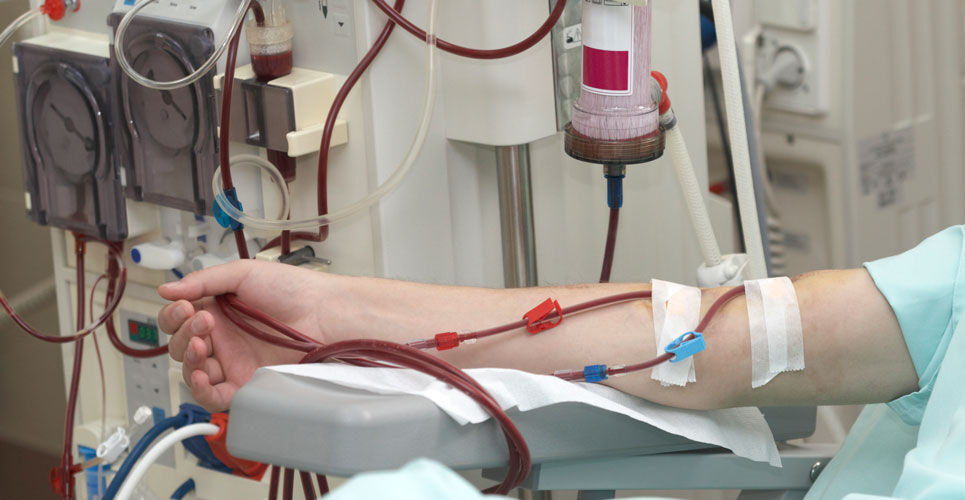As haemodialysis patients with COVID-19 were excluded from the original clinical trials there is uncertainty over the benefits of the drug
Remdesivir was the first anti-viral drug for COVID-19 to be recommended for authorisation in the European Union. It was approved for adults and adolescents (from 12 years of age and weighing at least 40 kilograms) with pneumonia requiring supplemental oxygen (low- or high-flow oxygen or other non-invasive ventilation at the start of treatment). However, according to the summary of product characteristics of the drug, remdesivir should not be used in patients with eGFR < 30 mL/min. Nevertheless, death from COVID-19 has been reported to be as high as 30.5% among haemodialysis patients highlighting the need to improve the prognosis of this patient cohort after infection with the virus. In an observational study of 48 haemodialysis patients infected with COVID-19, when remdesivir was given at a dose of 100 mg 4 hours before the dialysis sessions, there were no significant effects on liver function tests. In addition, more than two-thirds of patients showed an improvement in oxygen requirement and the duration of hospital stay was reduced to a mean of 5.5 days.
With early indications that remdesivir was safe and potentially effective in patients with reduced renal function, for the present study, Korean researchers examined use of the drug in hospitalised patients receiving haemodialysis. The drug was given at a loading dose of 100 mg and then 50 mg for the next 2 to 4 days depending on the patient’s status. The primary outcome was a composite of in-hospital mortality, use of a high-flow nasal cannula or transfer to an intensive care unit.
Haemodialysis patients and COVID-19 outcomes
A total of 118 patients with a mean age of 68.5 years (66.1% male) were included in the analysis and of whom, 44 (37.3%) received remdesivir.
The composite primary outcome occurred in 2.3% of the remdesivir group and 13.5% of those not given the drug (p = 0.042). In addition, disease worsening was also lower (6.8% vs 20.3%, p = 0.049) in the remdesivir group.
In regression analysis, remdesivir use was independently associated with a lower occurrence of the primary outcome (adjusted odds ratio, aOR = 0.01, 95% CI 0.001 – 0.31, p = 0.009) and disease severity worsening (aOR = 0.08, 95% CI 0.02 – 0.42, p = 0.003).
The authors also reported no anaphylaxis or hypersensitivity reactions to the drug and that the incidence of liver enzyme elevation during hospitalisation did not significantly differ between the groups (22.7% vs 17.6%, p = 0.494).
They concluded that remdesivir was safe to use in haemodialysis patients and was associated with better clinical outcomes and a reduced risk of disease worsening.
Citation
Lim JH et al. Clinical Effectiveness and Safety of Remdesivir in Hemodialysis Patients with COVID-19 Kidney Int Rep 2022

